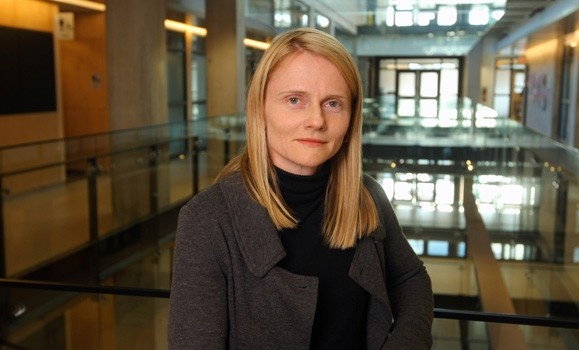Since completing Dalhousie’s Master of Architecture program, Susan Fitzgerald has built a multifaceted career for herself: as a partner at Fowler Bauld and Mitchell (the architecture firm behind Dalhousie’s new Mona Campbell Building), the founder of her own design company Susan Fitzgerald Architecture, and a teaching gig as a sessional professor with Dalhousie’s Faculty of Architecture.
When I meet up with Ms. Fitzgerald, she confesses that she has been interviewed a lot recently. Though she may find all the attention a little daunting, it is well deserved. Her firm, Susan Fitzgerald Architecture, is this year’s winner of the Professional Prix de Rome in Architecture, a $50,000 grant from The Canada Council for the Arts.
The award is given to an architect or architectural firm that has demonstrated remarkable artistic potential in his or her initial work. Applicants must also submit a proposal for a research project, which will allow the architect to hone his or her craft through a travel/study experience.
Ms. Fitzgerald calls the win a “tremendous honour, and a unique opportunity.” She will use the prize money to fund her research project, entitled Productive Urban Landscape, which will look at how architecture, landscape, ecology, and agriculture interact in urban areas. On visits to Cuba, Peru, Brazil, Mexico, Panama and Chile, Ms. Fitzgerald will study real-life examples of these interactions.
First stop? Havana, Cuba
“Cuba is seen as a tourist destination, but it has so many other components to it,” she explains. “After the fall of the Soviet Union, and the US trade embargo, Cuba has had to become self sufficient with food production, and Havana has developed urban agriculture in their city.” Conducting her research on location will allow her to see “how urban agriculture is changing the face of Havana.”
Ms. Fitzgerald is also particularly excited to visit Machu Picchu (Peru), an ancient Inca settlement, now recognized as a UNESCO World Heritage Site. In a place where earthquakes constantly threaten the surroundings, Machu Picchu is an incredible example of the Incan ingenuity in building. The remote mountain location also required the city to be largely self-sufficient, and so there is a system of farming terraces built into the side of the mountain, from which the population’s food could be produced.
“It is the most perfect integration of landscape and architecture,” says Ms. Fitzgerald.
Buildings and their environment
Ms. Fitzgerald uses this same focus of integrating buildings into their landscape in her own work (you can view examples at susanfitzgeraldarchitecture.com).
“Building can be a detriment to the environment, so architecture has become tremendously interested in sustainability,” she says. “It is important to have buildings that are more attuned to their environments, as well as integrated with their communities and other buildings around them.”
Nature is Ms. Fitzgerald’s constant inspiration. Originally from England, she admits that moving to Canada provided a drastic change of scenery. She found herself thinking, “How can we inhabit this vast space?”
Her series of trips over the next two years through Latin America will surely provide a similar broadening of horizons, and Ms. Fitzgerald hopes to report publicly on her findings, perhaps through a book or an exhibition. “A lot of these things are quite magical,” she says, with obvious excitement.
It is clear that Ms. Fitzgerald has found what many students hope for after graduation: a fulfilling career that allows for continuing personal growth and development. When asked for the secret to this, she responds, “If you’re passionate about it, make it happen for yourself.”

